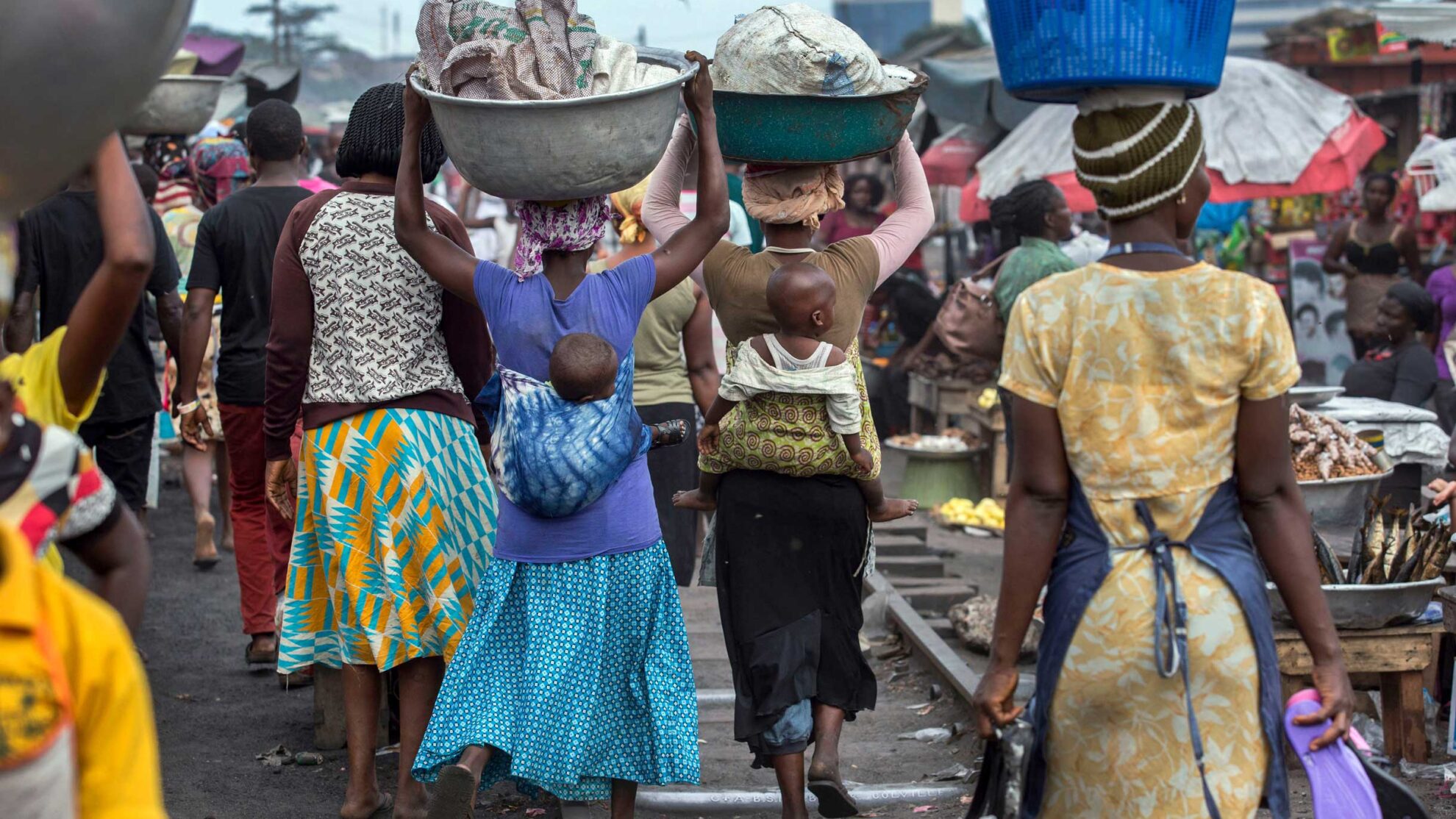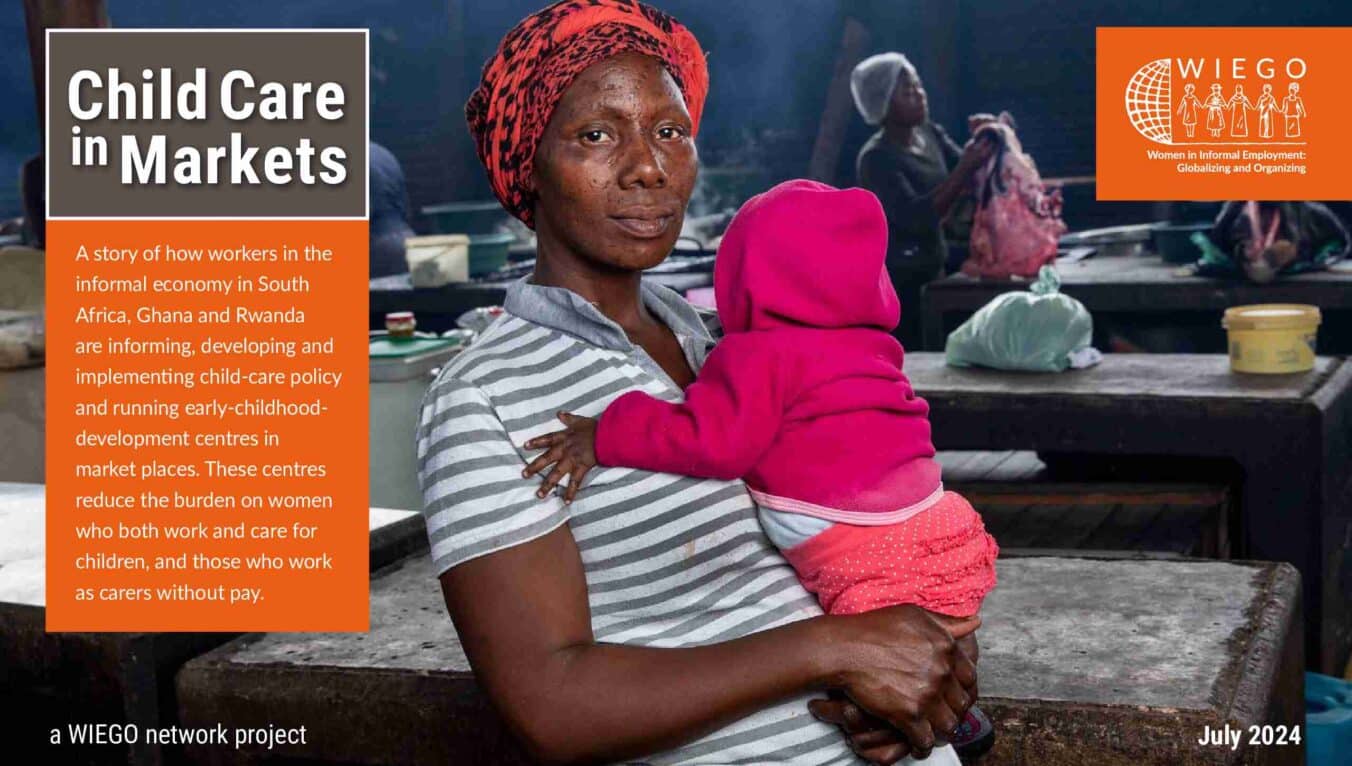Across the globe, working parents, particularly women, find themselves juggling the need to earn an income and care for children at the same time. Women often lose earning opportunities or face reduced incomes and long hours balancing paid and unpaid work. This applies to women working in both the formal and the informal economy. During the COVID-19 crisis, when the care burden increased significantly, WIEGO’s global study found that women with increased care responsibilities faced a bigger income drop than their male counterparts and took longer to recover their earnings.
Child-care services in informal workplaces – such as markets – are particularly challenging to provide because of a lack of regulation and guidelines, space restrictions and affordability issues. WIEGO’s Social Protection Programme, together with the Accra Focal Cities team, Asiye eTafuleni, and SYTRIECI are working creatively to develop sustainable solutions to these challenges.
You can read more about our work in our e-book (available in English, French and Spanish).




